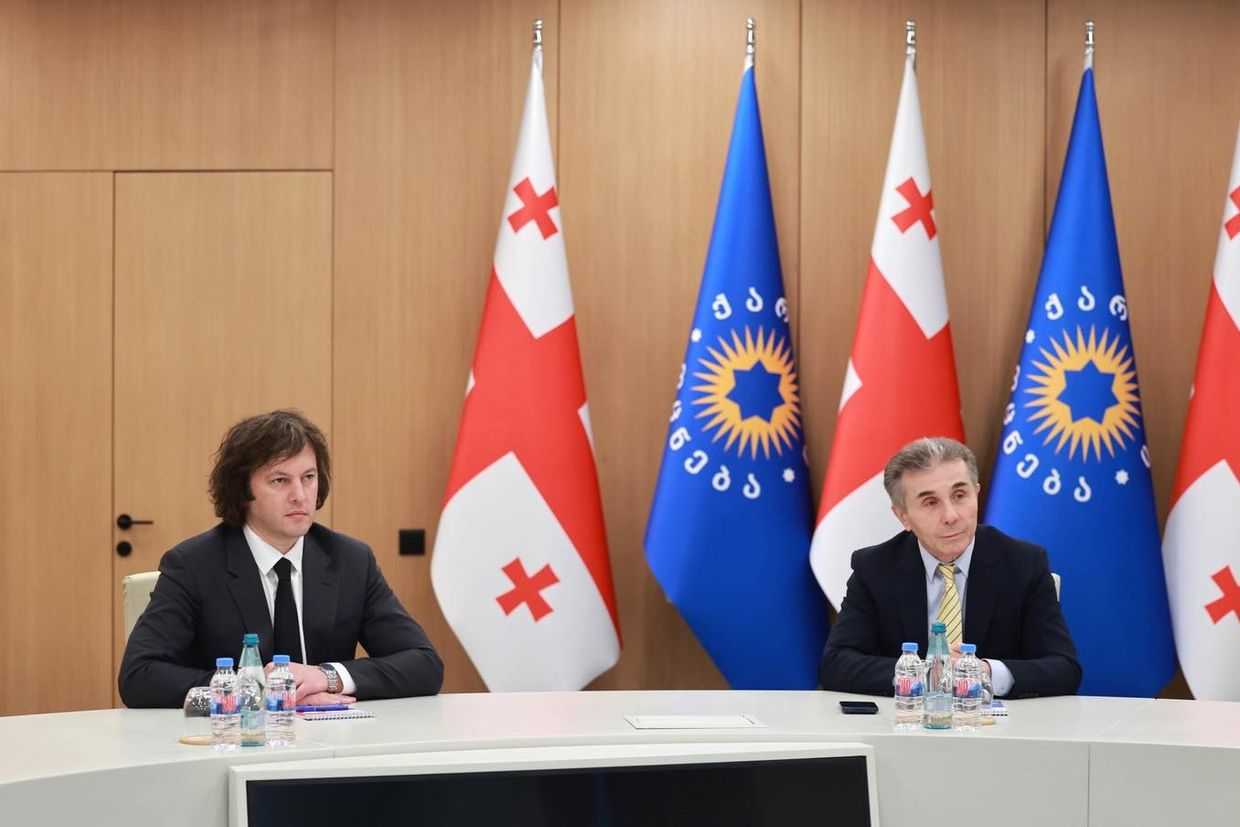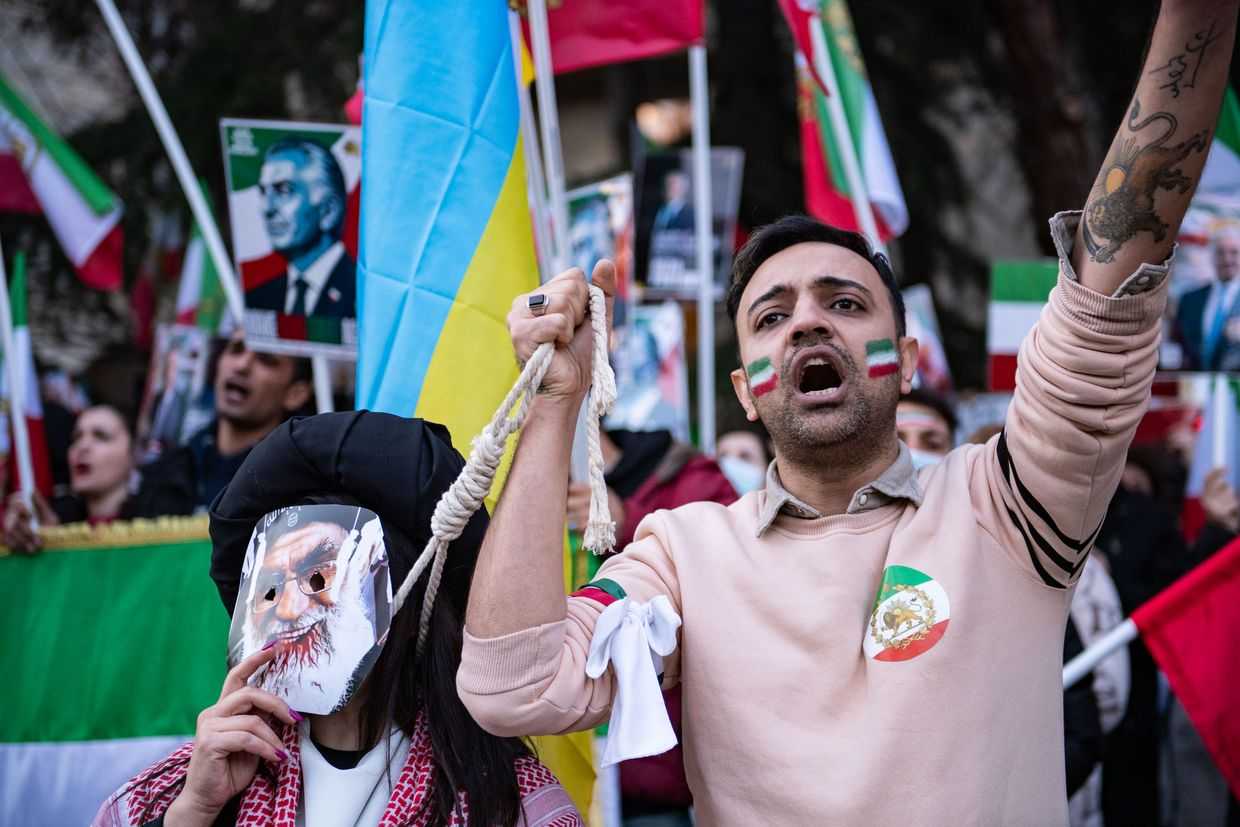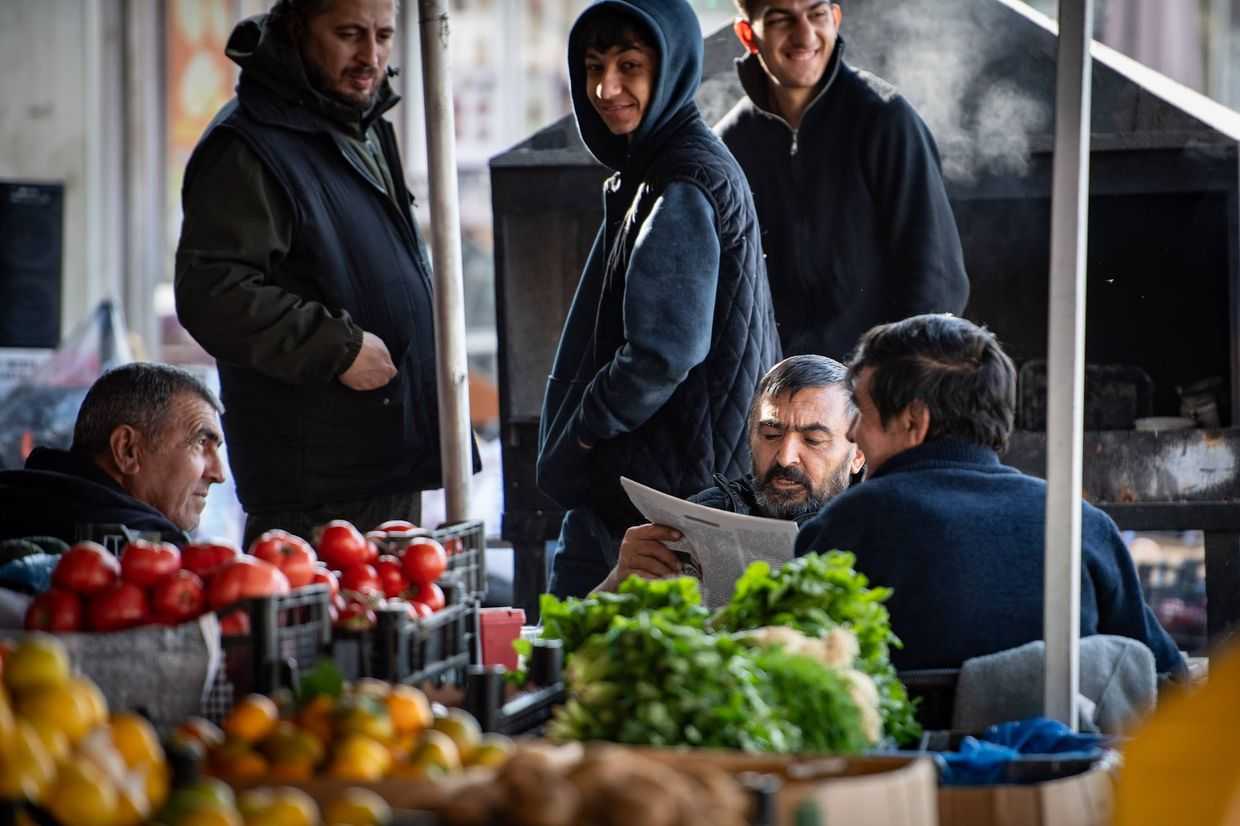
Georgian Economy Minister Natia Turnava has resigned, at the behest of Prime Minister Irakli Gharibshvli. She had become known as an ardent defender of the ruling Georgian Dream party on some of its most controversial decisions, including the construction of the Namakhvani dam, and the cancellation of the Ankalia deep-sea port.
On 9 February, Georgian Prime Minister Irakli Gharibashvili announced a change in his cabinet, removing Natia Turnava as Minister of Economy and Sustainable Development and replacing her with Levan Davitashvili, who had been leading the Ministry of Environmental Protection and Agriculture.
Serving under several different Prime Ministers, Turnava was steadfast in her expressions of loyalty to the government and was known as an ardent defender of some of its most controversial policies.
Davitashvili, who is also Vice Prime Minister, will be replaced by his former deputy Otar Shamugia. Additionally, Turnava’s deputy Otar Danelia has been appointed as Georgian Business Ombudsman, a position that had remained vacant for over a year.
Turnava commented on her firing, stating that she wanted to try herself ‘in another area’ without specifying further and added that she remains ‘loyal to the team’.
Rumours about Turnava’s resignation or sacking surfaced several times during her tenure, including six months after her appointment.
Natia Turnava was appointed as Minister of Economy and Sustainable Development in April 2019, during the brief tenure of Prime Minister Mamuka Bakhtadze; despite the apparent precarity of her position she outlasted even Prime Minister Giorgi Gakharia, who resigned in February last year.
Before becoming a minister, Turnava served as Deputy or First Deputy Economy Minister of Georgia three times, including during the rule of the United National Movement (UNM) party and the preceding Eduard Shevardnadze-led government.
Shortly after she was appointed, it was uncovered that the only recorded political donation from her was in 2012 and made to UNM, currently the country’s largest opposition party and much-despised by the ruling Georgian Dream party. Though it appeared to have made little impact on her standing within the government.
In September 2019, Turnava was dispatched by Gakharia to help end a miners’ strike in the west Georgian town of Tkibuli.
While Turnava appeared to have succeeded in ending the strike, having promised workers that a new investor in the town’s mines would raise safety standards, the mono-industrial town has remained, as several key watchdog groups described this January, an ‘epicentre of a continuous cycle of worker deaths due to systemic violations of labour safety rules’. Labour unrest in Tkibuli has since re-erupted.
[Read more on OC Media: Stuck between a rock and a hard place — the miners of Tkibuli]
Controversial projects
Despite the dire situation in workers’ rights under her tenure, Turnava’s biggest challenges concerned a series of large infrastructure projects throughout the country.
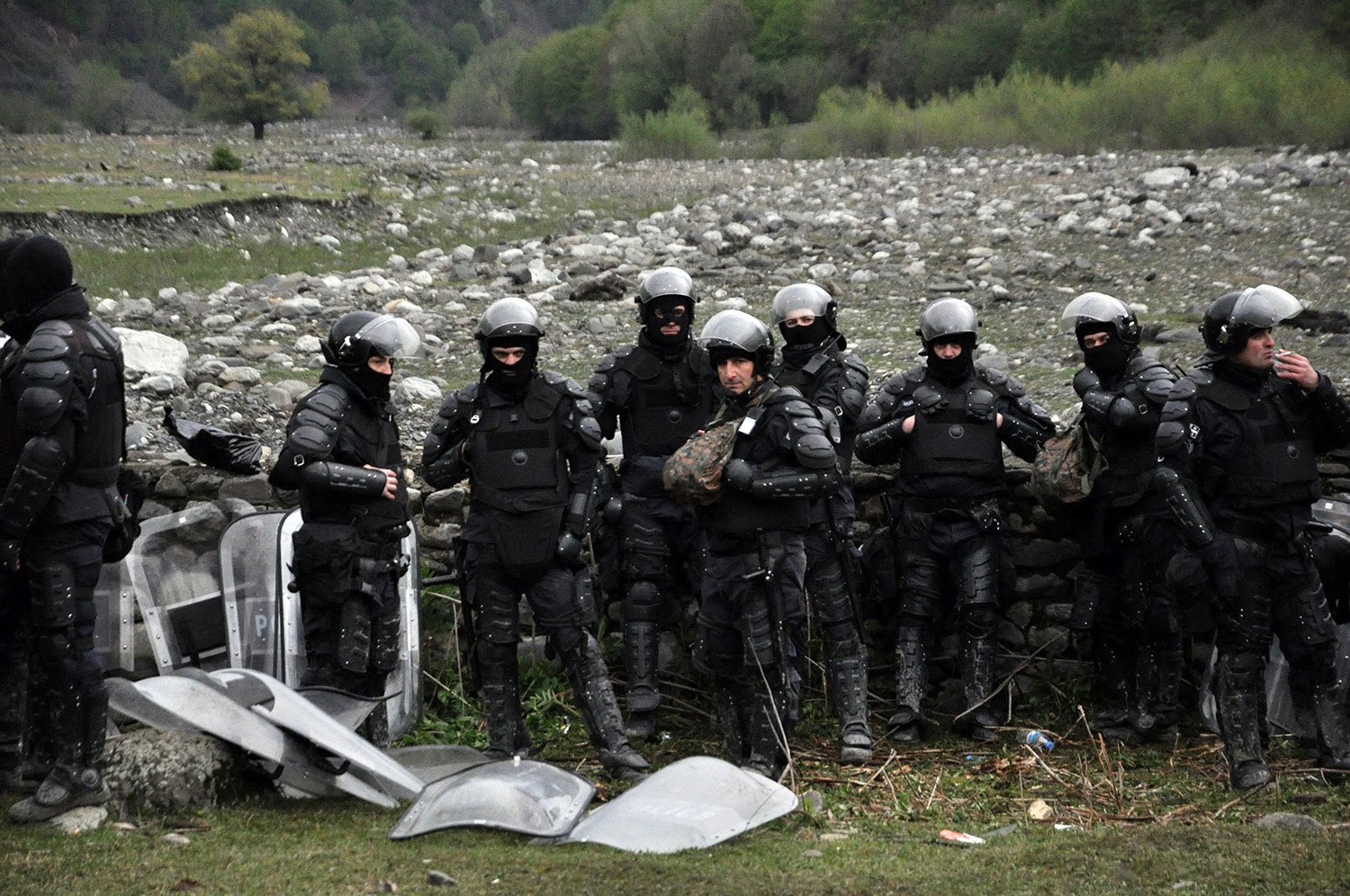
On 21 April 2019, within days after her appointment, residents of northeast Georgia’s Pankisi Valley in the village of Birkiani clashed with police units after law enforcement officers, upon Turnava’s request, were deployed to secure the resumption of construction work on a hydropower plant (HPP) there.
Residents of Pankisi, primarily Georgian Kists, a Chechen sub-ethnos, had harboured grievances over alleged government pressure on local activists to stop their protest.
[Read the Editorial by OC Media: Editorial | Georgia’s show of force in Pankisi was reckless and irresponsible]
Following a public outcry, the Georgian authorities eventually backed down, vowing that they would not proceed with 5.4 MgWt Khadori-3 HPP unless ‘90% of local residents supported the project’.
While the infrastructure projects technically fell under the purview of Infrastructure Minister Maia Tskitishvili, Turnava’s tenure is also associated with the government’s cancellation of a contract with the investment company behind the Anaklia Deep-Sea Port project.
The government, accused by critics of scuppering the multi-million dollar project so as not to create competition for the rival Poti Port on Georgia’s Black Sea coast, has till this day insisted that they are eager to build the Anaklia port — with Turnava being one of the loudest voices. Late December, she assured the public that they were ‘in talks’ with the new investors to save the project.
[Read more on OC Media: Anaklia row reemerges after leak shows Ivanishvili link to rival port]
Turnava also took significant heat for her ardent defence of the $800 million Namakhvani hydropower plant planned to be built in the north-western Georgian region of Lechkhumi and would displace nearly 300 families.
On various occasions, the Minister accused opponents of the Namakhvani project — who had successfully held a series of massive thousands-strong protests — of homophobia and channelling anti-Turkish sentiments and vowed in March 2021 that the joint Turkish-Georgian project will be supervised by an ethnic Georgian rather than a Turk.
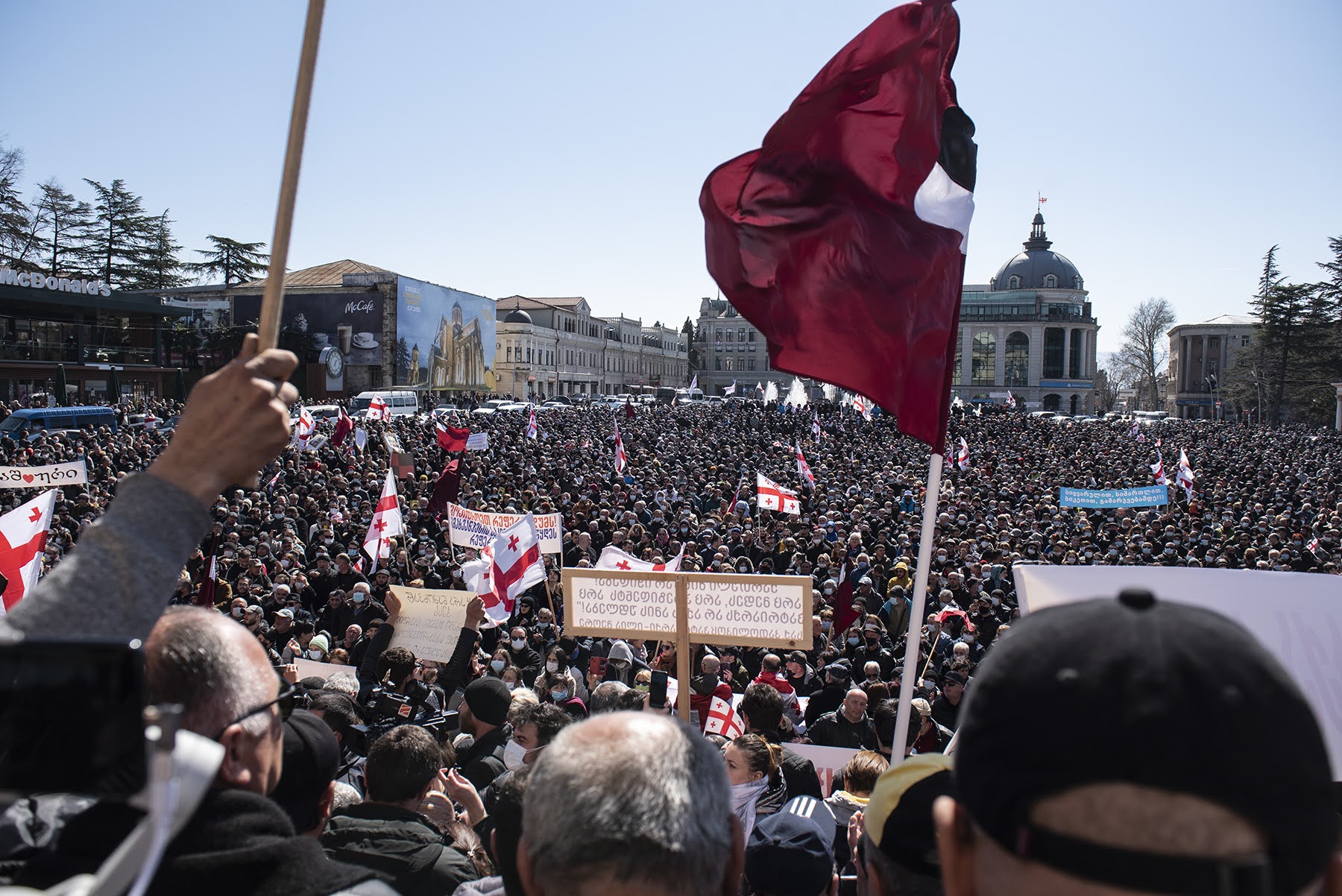
Last September, the government suddenly announced the plant would not be going ahead. Nevertheless, Turnava continued advocating for the dam, ‘hoping’ to reach some agreement with the investor, Enka Renewables, without the involvement of international arbitration. She later suggested the Georgian state should take over the project.
Her resignation was one among several key demands of the anti-Namakhvani dam protesters that continue their protest to this day.



